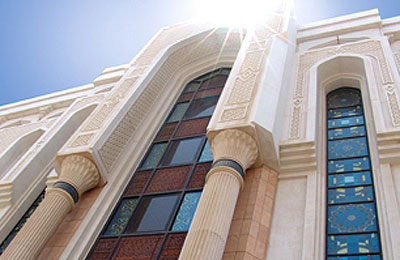
Oman sets strict Islamic banking rules
Dubai, December 20, 2012
Oman's central bank took a strict approach to regulating Islamic banking in rules for the sector which it released yesterday, setting higher standards for the industry than many other countries.
The sultanate announced last year that it would introduce Islamic finance, becoming the last GCC country to do so, according to a report in our sister publication, the Gulf Daily News.
Business activity is expected to start early next year.
The central bank's rules cover areas including banks' liquidity management, administration of boards of Sharia scholars who oversee Islamic financial institutions, and the operation of conventional banks' Islamic windows.
A major provision is tight restriction of the use of tawarruq as a money market instrument for banks; this is expected to limit banks' flexibility in managing their funds overnight, and could thus raise their costs.
"Commodity murabaha or tawarruq, by whatever name called, is not allowed for the licensees in the sultanate as a general rule," the document states.
Omani banks had lobbied the central bank to permit tawarruq, at least temporarily while the new industry found its feet. But the rules do not appear to permit this, saying tawarruq can only be used in emergency situations on a one-off basis for a period of no more than three months.
Interbank transactions which are allowed include mudaraba, musharaka and wakala placements.
The rules state that financial accounting standards from the Accounting and Auditing Organisation for Islamic Financial Institutions, a Bahrain-based industry body, will be followed.
Oman will allow each bank to have its own Sharia board to supervise products, rather than imposing a centralised board for the whole industry.
Smaller institutions will be allowed to outsource the Sharia board function subject to central bank approval.
But unlike other countries in the region, the central bank has set out strict requirements for scholars, including criteria for whether they are fit and proper, maximum tenures, and limits on the number of board seats that an individual can hold. The scholars are also required to attend a minimum of 75 per cent of board meetings or risk being disqualified.
Two full-fledged Islamic banks, Bank Nizwa and Al Izz International Bank, will be joined in Oman by conventional banks using Islamic windows to offer Sharia-compliant products through their branch networks.
According to the rules, a single branch cannot operate both an Islamic window and conventional banking services.
The rules also outline stock market listing requirements, ownership limits, minimum paid-in capital amounts, and a 12 per cent minimum capital adequacy ratio for Islamic banks. – TradeArabia News Service







